Lawn Gives Way to a More Natural Lakeside Garden
http://decor-ideas.org 07/20/2014 19:13 Decor Ideas
With an uncommon sense of possibility, award-winning landscape designer Paul Broadhurst transformed a suburban expanse of lawn into a pebbly beach and a naturalistic meadow, reconnecting the landscape with the spirit of its lakefront setting.
Broadhurst was working on a project next door to the site, on the shores of Lake Washington in Kirkland, Washington, when he noticed that the concrete bulkhead fronting the property was developing sinkholes. He approached the homeowners and pitched the idea of completely reinventing their landscape rather than simply repairing the bulkhead. “They had this beautiful piece of waterfront property,” Broadhurst says. “Why not take full advantage of the setting?”
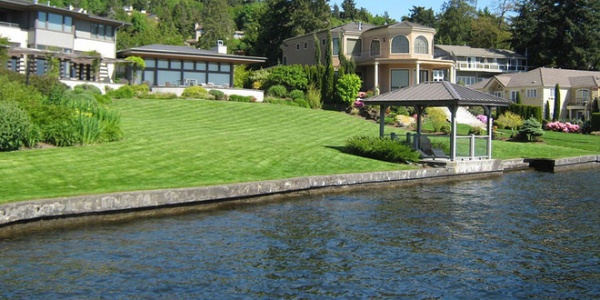
Yard at a Glance
Location: Kirkland (near Seattle)
Size: About 1 acre
Before, a swath of lawn covered the space, edged by a concrete bulkhead that impeded aquatic life at the water’s edge. Broadhurst explains: “A bulkhead creates turbulence underneath as waves ricochet off it. The waves have no way to dissipate energy. No plant life can exist in those conditions.”
His vision included a preponderance of native plants, a family-friendly pool area and a reclaimed beach. To help the owners envision this natural wonderland he was proposing, Broadhurst took a kayak trip with them and their grandchildren to the Nature Conservancy’s Yellow Island Preserve in Puget Sound. The family was so taken with the island’s lush landscape that they enthusiastically embraced Broadhurst’s design.
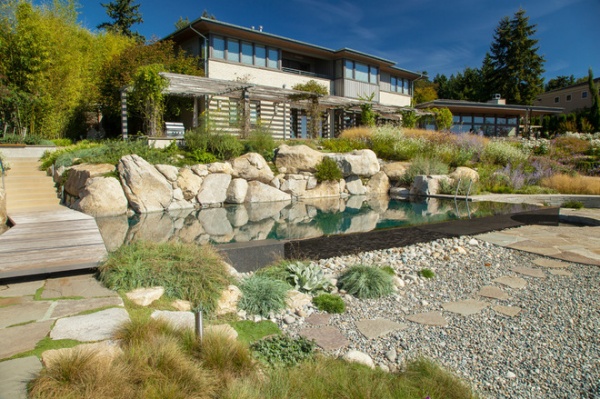
AFTER: The years-long makeover transformed the once-sterile shoreline into a beach that looks as if it’s always been there. Behind it is a stylish new negative-edge pool along with a lush and sweeping meadow. The meadow is a mix of native and nonnative plants, all of which thrive in this Washington location. It’s naturalistic, unlike the lawn it replaced.
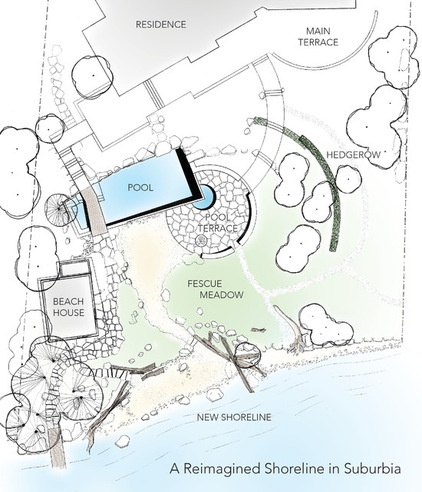
Broadhurst’s fluid combination of curves and angles was inspired by abstract artist Wassily Kandinsky’s dynamic “Composition 8.”
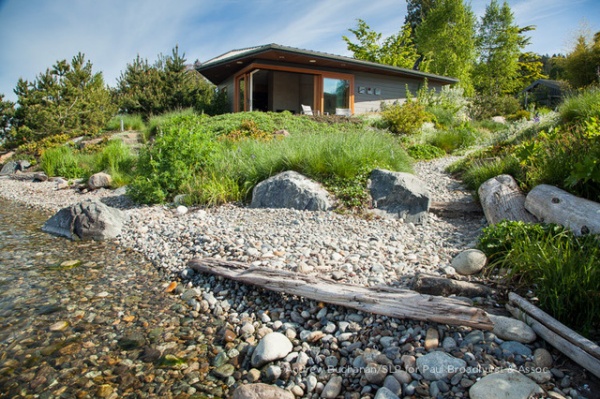
The bulkhead was removed via a barge equipped with a crane. Pebbles, boulders and downed timbers were brought to the site, all arranged with an artistic eye. Broadhurst stapled the salvaged logs into the bank, creating the look of driftwood that has naturally washed ashore.
Now plants have taken root near the shore, freshwater crayfish visit and even an otter has made an appearance.
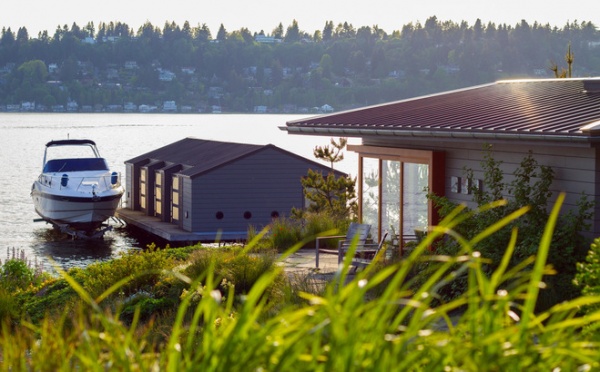
An existing boathouse on the property was redesigned in collaboration with architect Jeff Phillips. Nearby, a dilapidated guesthouse was rebuilt and reoriented by Phillips according to Broadhurst’s specifications. “I wanted it to have the feel of an open, airy pavilion,” Broadhurst says.
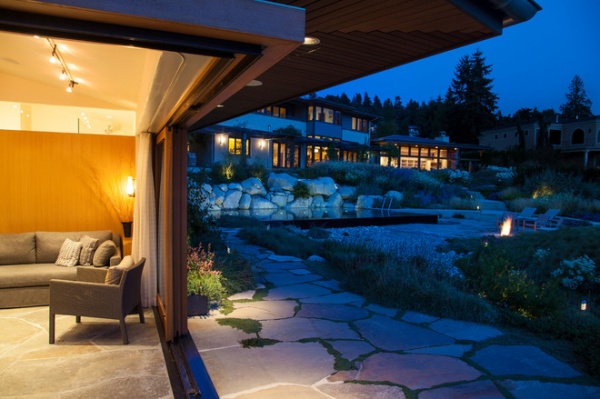
The guesthouse’s sliding glass panels achieve the goal of connecting the indoors to the landscape. The house is equipped with a fireplace, full kitchen and bath. Its floors are Pennsylvania bluestone.
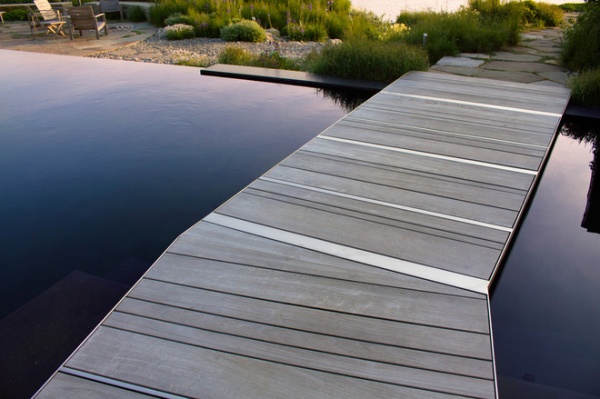
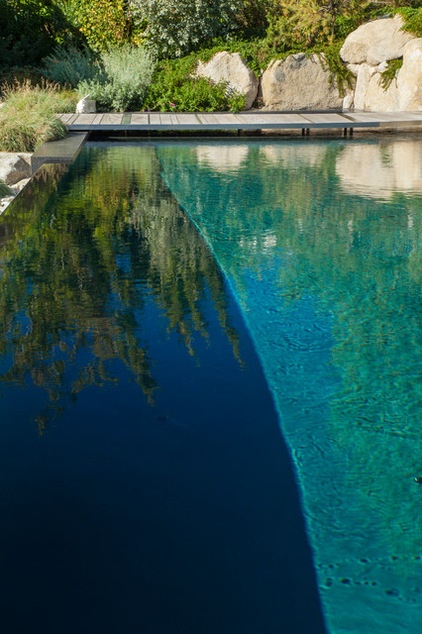
A short walk from the guesthouse leads to the new disappearing-edge pool. An ipe walkway with stainless steel cross members leads from the guesthouse and traverses the pool, ending at the main house.
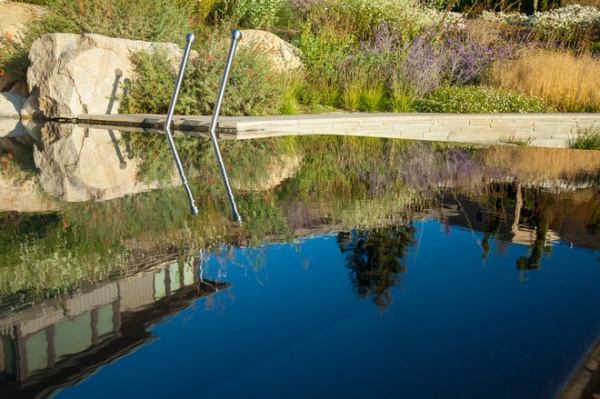
The angular contours of the pool contrast with the rolling mounds of the meadow.
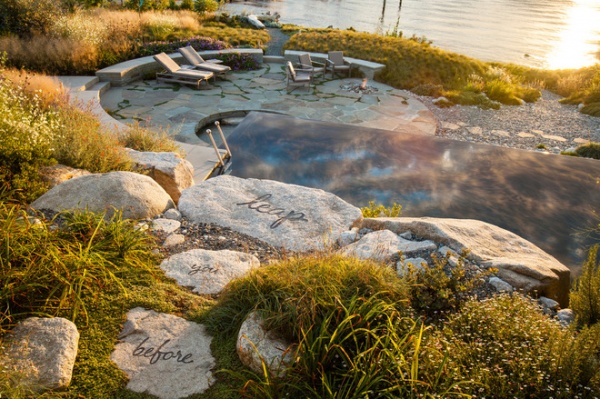
Above the pool, boulders inscribed with “Look before you leap” are an ideal point for jumping into the water.
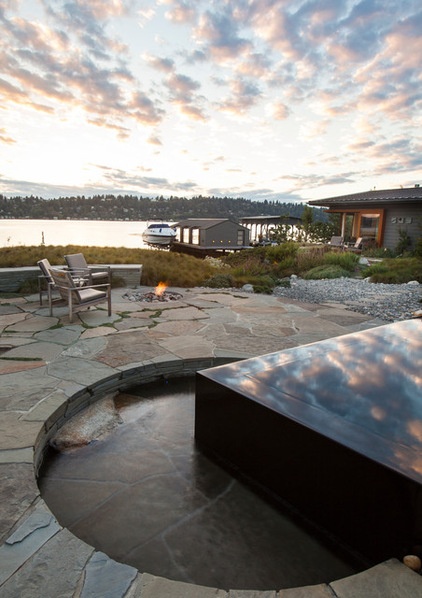
The infinity pool spills into a shallow, kid-friendly wading pool on the terrace below.
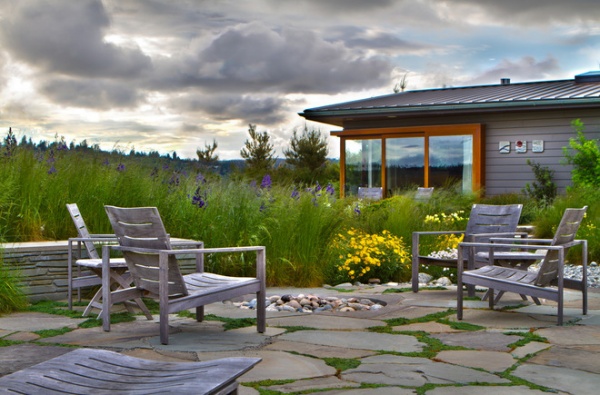
Crafted of Pennsylvania bluestone, the terrace affords a peaceful view of the surrounding meadow and the guesthouse.
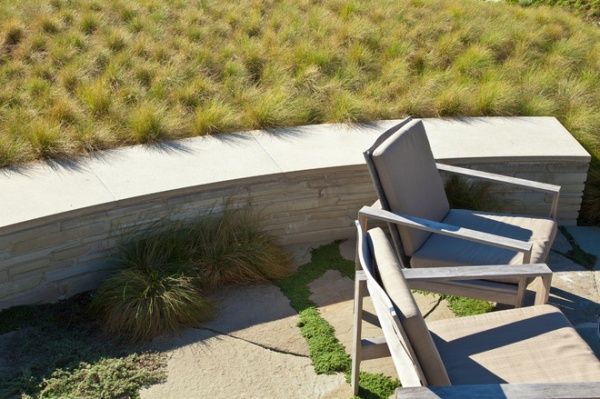
The pool terrace is edged with a curving wall of the same bluestone. The contractor painstakingly cut each piece of the wall with a custom-designed blade to conform to the curve sketched by Broadhurst. Custom sandblasted concrete caps the wall. Roemer’s fescue (Festuca roemeri) is massed behind the wall.
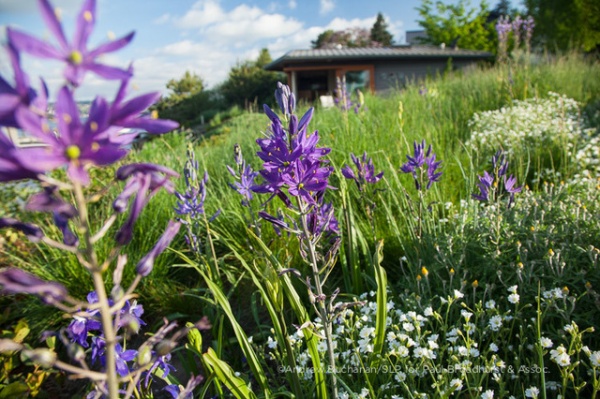
The Yellow Island–inspired meadow weaves gracefully through the site. Among the native plants Broadhurst chose are Menzies’ larkspur (Delphinium menziesii), Roemer’s fescue (Festuca roemeri), Oregon iris (Iris tenax), wild stonecrops (Sedum oreganum and S. spathulifollum) and several varieties of Camassia.
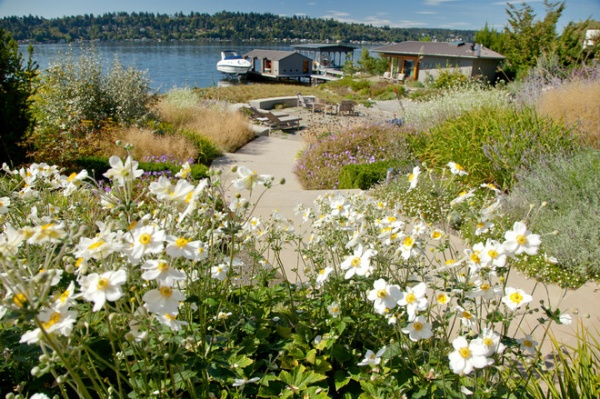
Well-adapted nonnatives, such as Japanese anemone ‘Honorine Jobert’, round out the picture.
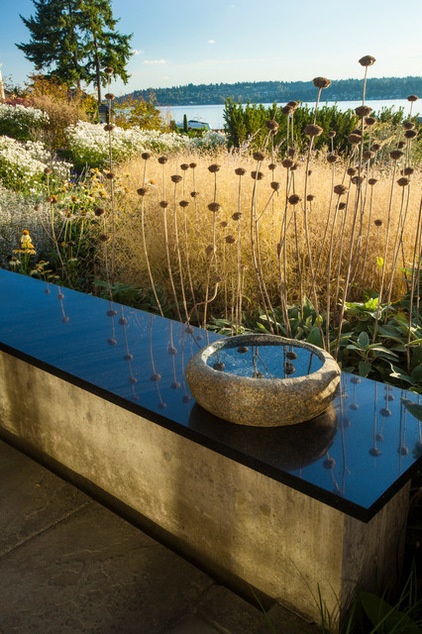
The existing upper terrace adjacent to the house was left untouched, but its low seating wall was smartened up with a new black granite cap that echoes the shiny expanse of the pool.
Jerusalem sage (Phlomis russeliana) seedpods grow tall behind the seat wall.
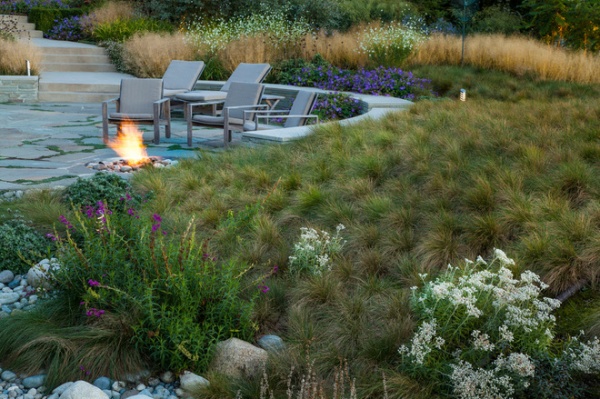
The undertaking has been so successful that Green Shores for Homes, an initiative in Washington and British Columbia that helps homeowners restore natural shorelines, has embraced the Kirkland project as its pilot program.
“Referencing Yellow Island grounds the project in the region,” Broadhurst says. “And for the owners, it gives the whole thing a deeper meaning.” Golden tufted hairgrass (Deschampsia cespitosa ‘Goldtau’) grows in the distance.
More: Natural Swimming Pools: More Beauty, No Chemicals
Related Articles Recommended












